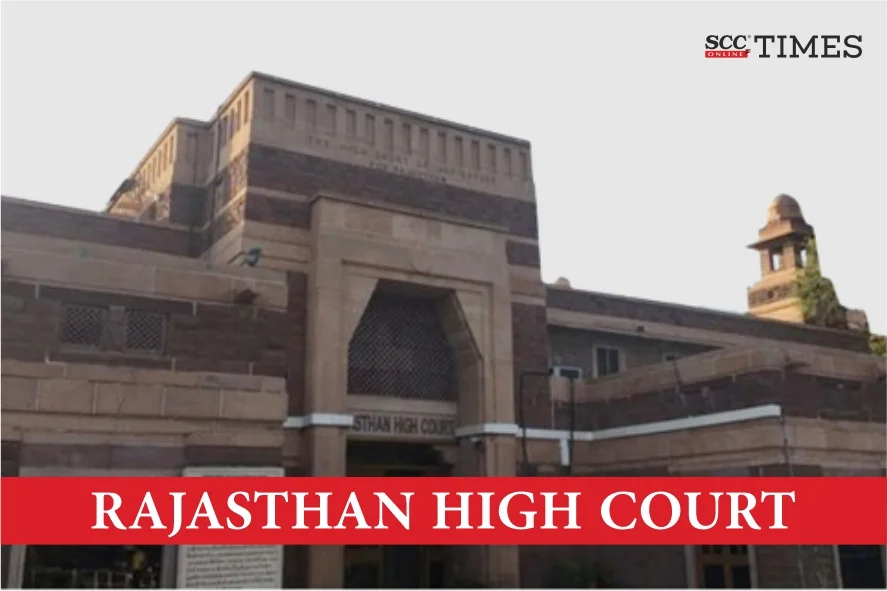Rajasthan High Court: In a criminal miscellaneous petition seeking to quash the orders by the Sessions Judge, Merta, and the Special Civil Judge and criminal proceeding with specific allegation under Section 494 of the Penal Code, 1860 (IPC) pertaining to the petitioner allegedly solemnizing a second marriage with another woman, a single-judge bench comprising of Kuldeep Mathur, J., held that mere cohabitation does not constitute an offence under Section 494 IPC without evidence of a valid marriage. The Court quashed and set aside the impugned orders and criminal proceedings pending against the petitioner for the offense under Section 494 IPC.
In the instant matter, the petitioner-husband filed a criminal miscellaneous petition under Section 482 of the Criminal Procedure Code, 1973 (CrPC) seeking to quash orders dated 05-01-2019, and 25-07-2018. The respondent-wife lodged a complaint against the petitioner alleging offenses under Sections 498-A, 406, 323, 494, and 497 of the IPC. The complaint particularly accused the petitioner of marrying another woman, thus committing bigamy under Section 494 IPC. The complaint led to criminal proceedings, including orders by the Special Civil Judge, Degana, and the Sessions Judge, Merta.
The petitioner challenged these orders, arguing that no second marriage with another woman was solemnized according to essential religious ceremonies. The petitioner contended that the respondent’s complaint which is made 20 years after the alleged incident, lacks substance and is intended to harass. However, the respondent contended that the police investigation found the petitioner guilty of bigamy. It was contended that the validity of the second marriage is a factual question for the trial court. The respondent further asserted that even a customary Nata marriage implies guilt under Section 494 IPC.
The Court noted that the complaint and the respondent’s statements under Section 200 CrPC did not establish a valid second marriage. The Court stated that the long delay in lodging the complaint (20 years) also indicated a lack of immediate grievance. The Court asserted that there no evidence that the petitioner married Raju Devi according to Hindu rites. The Court further stated that even if a Nata marriage was performed, there was no proof that essential ceremonies were followed. The Court emphasised that for an offense under Section 494 IPC, a second marriage must be solemnized according to legal and religious ceremonies. The Court held that mere cohabitation does not constitute an offense under Section 494 IPC without proof of solemnization as per law.
“The mere fact of a man and a woman living together as husband and wife would not be considered as an offence punishable under Section 494
The Court set aside the criminal proceedings against the petitioner for the offense under Section 494 IPC and held that there is no evidence of a legally valid second marriage. The Court exercised its inherent powers under Section 482 of the CrPC and quashed the impugned orders dated 05-01-2019 and 25-07-2018 and rejected all associated stay and pending applications.
[Bhanwar Lal v. State of Rajasthan, 2024 SCC OnLine Raj 1203, order dated 07-05-2024]
Advocates who appeared in this case:
Mr. Navneet Poonia, Counsel for the Petitioner
Mr. AR Choudhary, PP and Ms. Aasu Devi, Counsel for the Respondents









